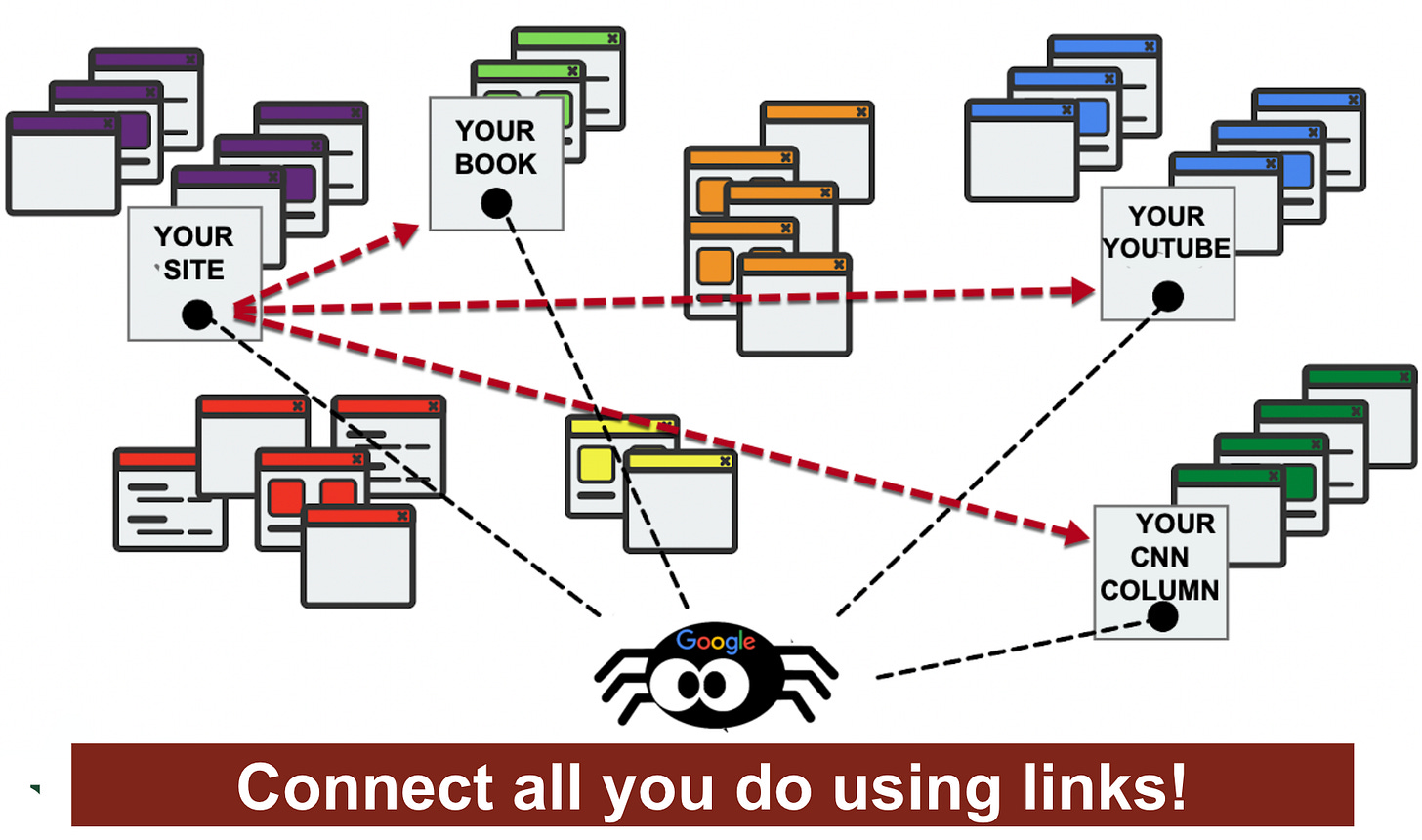HOW TO Create an About Page that Re-enforces Your Brand's EEAT
I bet you haven't checked your About pages for ages (I didn't!). Let this be your incentive to do that!
Google has been hiring human reviewers to evaluate the quality of their search results for many years. And those reviewers have had guidelines on how to evaluate the quality of search results. These guidelines introduced this acronym to us: EEAT which stands for “Experience, Expertise, Authoritativeness, and Trustworthiness)” of pages that rank in Google.
Is the author here an Expert of what he is talking about? (Meaning the topic of the query)
Is the web page Authoritative (Reputation)?
Can you Trust it? (Especially important for medical, financial, ecommerce sites.
Later on, another E was added to the guidelines that stand for “Experience”. An author doesn’t have to be an expert on a subject if they have had first-hand experience with what is described in the article.
Here's one way to think about it:
Expertise often involves objective, testable knowledge or skills, for example: can you calculate the load-bearing weight of a bridge?
Experience can be more subjective and is often shared through personal narration, for example: how does it feel to experience love for another person?
These are guidelines for human beings testing the search results page. While the algorithm is created to reflect those guidelines. Exactly how EEAT is determined by the automated system we don’t know.
But it also doesn’t matter because core principles of utilizing EEAT to formulate content strategies had been solid long before the acronym existed, and will continue to be.
You want your content to be trustworthy, authoritative and authentic.
So putting the stupid debates on whether an author byline is a ranking factor, let’s try and accomplish one thing today: revisit and enhance our about page!
Google often prioritizes About pages in search results for many branded queries either ranking is #1 or including it into the site’s sitelinks. There are more ways Google uses information from About Us page but we will get to this later.
So how to create an effective About page?
EEAT principles may be overlapping as some parts may be both expertise-driven and authoritative but to give you an idea:
E=experience.
Your unique path to becoming a business owner/ author/blogger, etc.
Your unique specialty which you found through your actual experience with a topic
E=expertise.
Your (and/or your team’s) professional expertise (education, training, years in business, etc.
Professional milestones, awards, recognition
A=authority
Your site and/or social media stats,
Your featured mentions, interviews, other columns,
Your readers / followers’ testimonials
T=trustworthiness
How can your trustworthiness / authenticity verified online (your social media identity with real interactions)
How to contact you (to share feedback), etc.
Now that we get an idea of essential EEAT sections, let’s also make sure how to make these easier for search engines to understand.
Link a lot!
How can Google make sure this is all the same person/brand/entity?
Only if you link everything you do!
Google needs links to:
Verify brand-earned mentions and brand-owned channels
Understand how well-cited (and hence authoritative) any page is
Create a map of sites, entities behind them, and concepts they represent
This is where linking out to other “entities” (e.g., brands, organizations, places, etc.) is so important: it helps Google identify your place within its knowledge base.
To give you some ideas, make sure to link to:
Your professional awards
Your featured mentions
Conferences you were/are speaking at
Courses you were certified at
Past jobs (especially if those were adding to your blog topic)
Your other food-related columns across the web (where else you write)
Your interviews
Your books
Use schema
Schema is a structured markup that helps Google (and other bots) extract essential information from the page. For About pages, the two possible types of schema are:
Person schema (if it’s all about you)
Organization schema (if it’s about your whole team).
Person schema can include your organization (your site).
I encourage everyone who has read up to this point to go ahead and revisit + improve your landing page now. Good luck!





Why, after so many years in digital marketing, did I not know Google used humans as reviewers? Oh, well. Ann, based on what you shared, I did some work on the About page on my Prescriptive Writing website. Hopefully, it meets all the criteria you specified now.